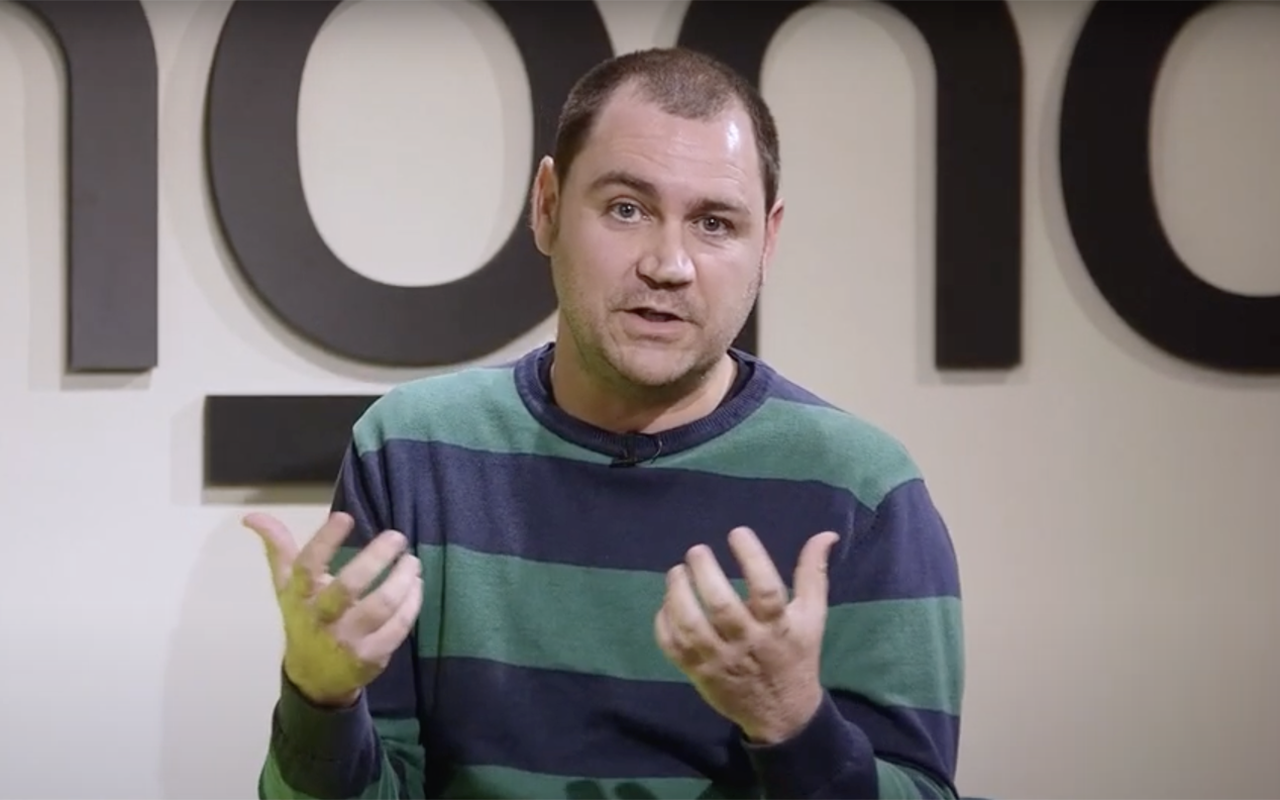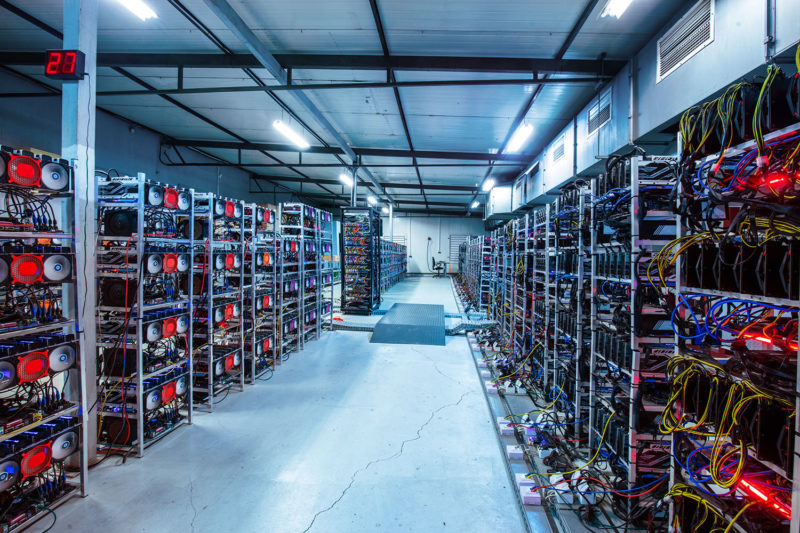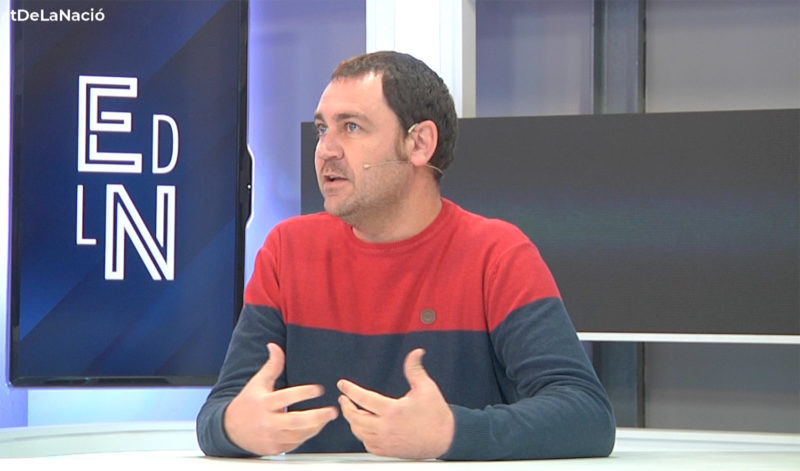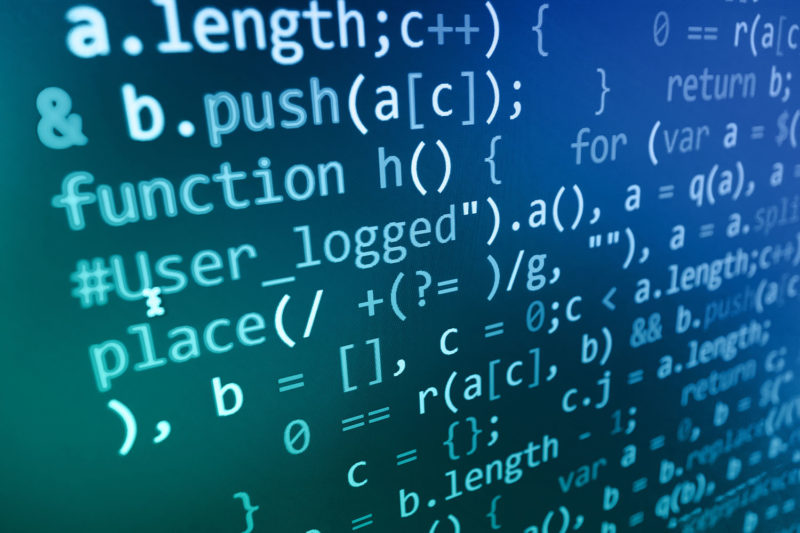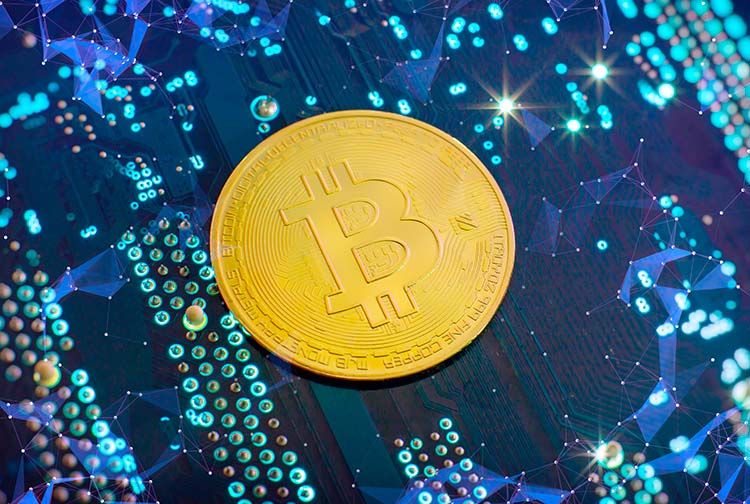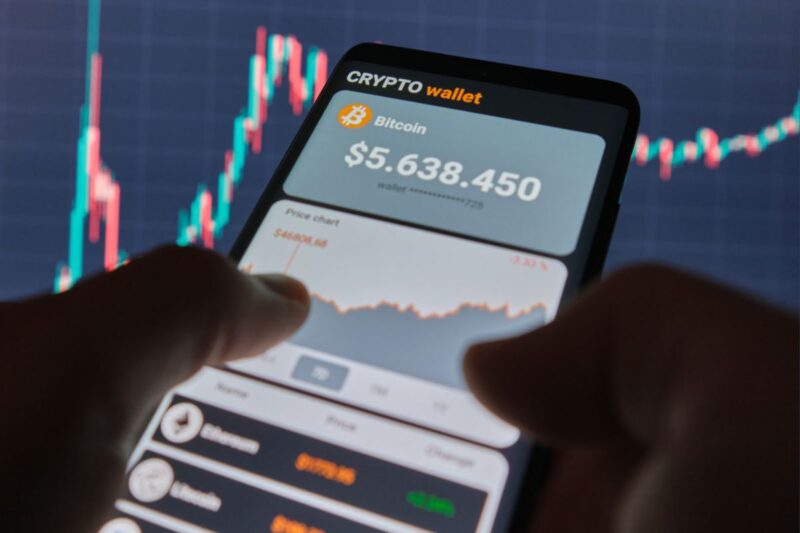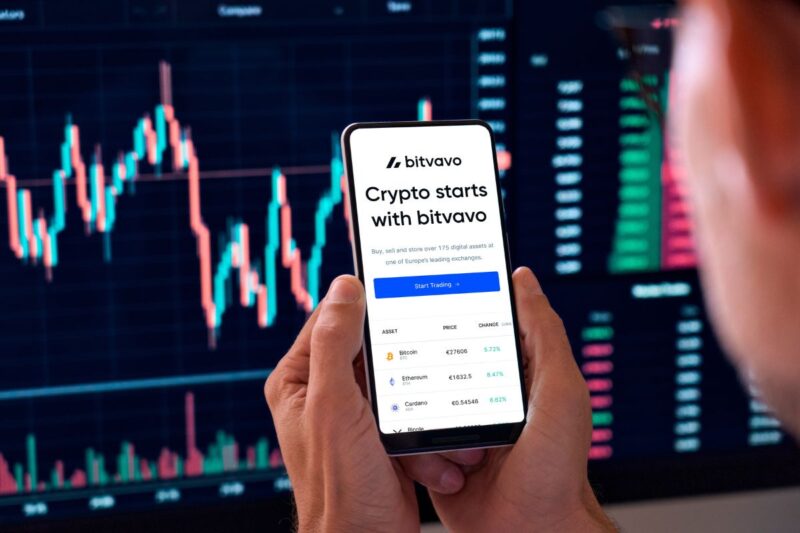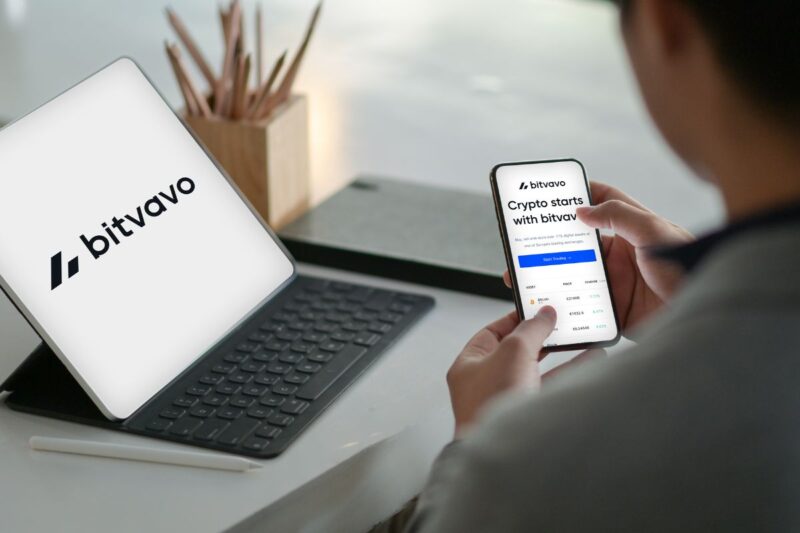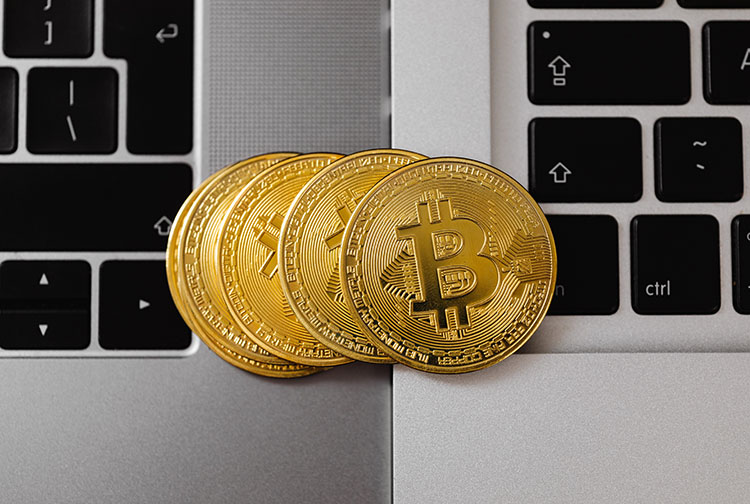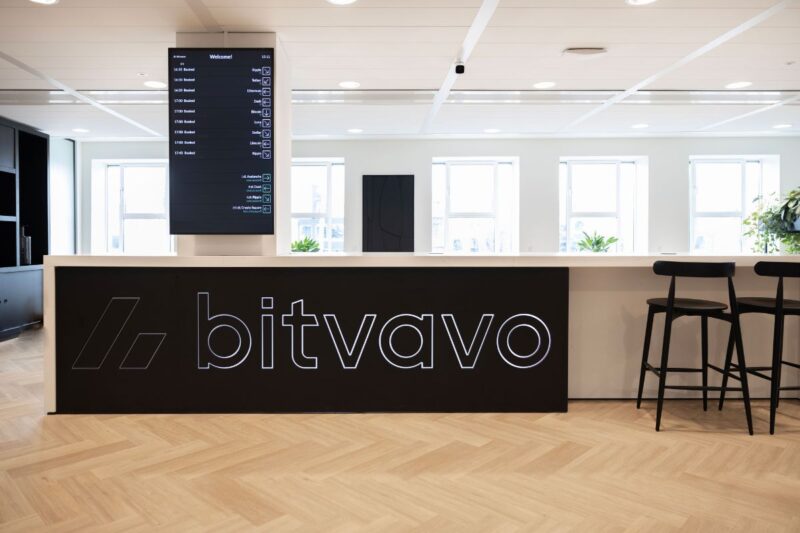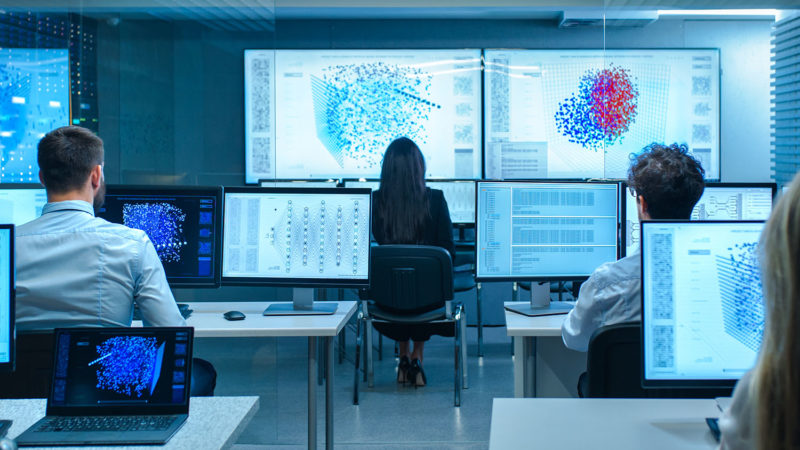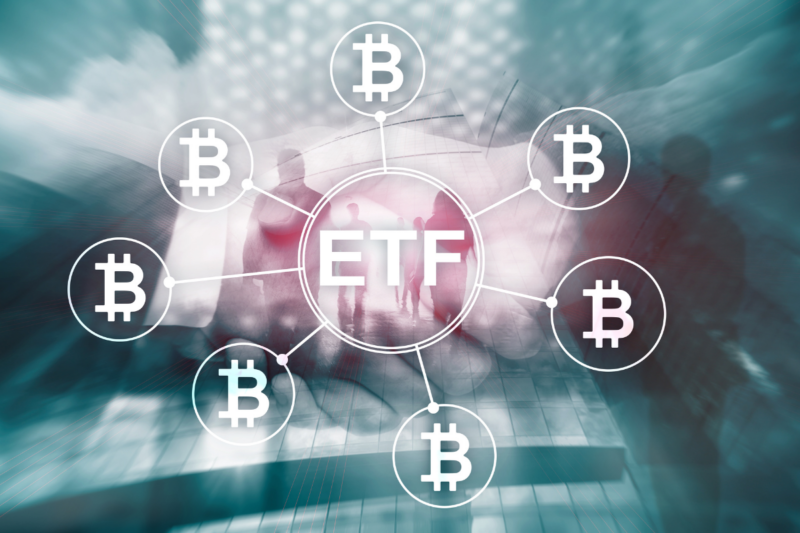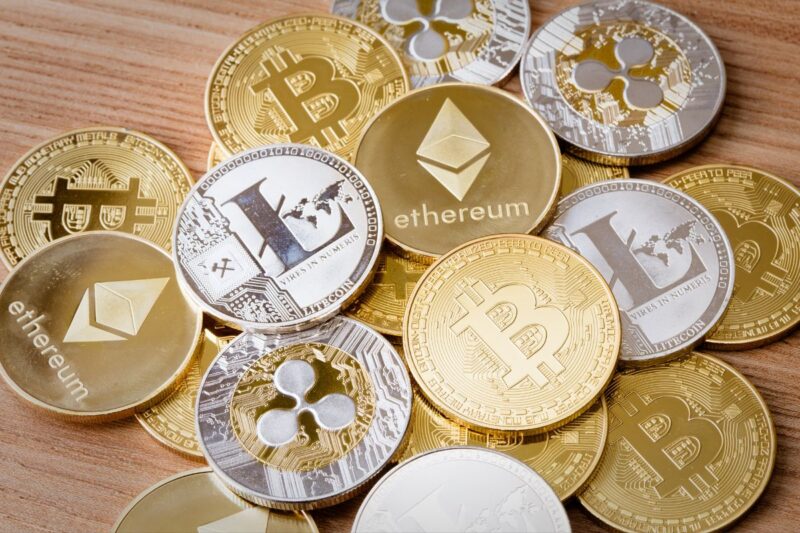Key concepts to understand cryptocurrencies
Cryptocurrencies have revolutionised the global financial system, but like any new technology, they raise a lot of questions. We have prepared a small glossary of the basic terms you should understand getting started in the world of cryptocurrencies.
Cryptocurrencies, also known as digital currencies, are alternative currencies that can be defined as digital assets that use cryptographic encryption to guarantee their ownership, ensure the integrity of transactions, and control the creation of additional units. That said, there are a few key concepts to be clear about when understanding how cryptocurrencies work.
Blockchain
The blockchain is a technology that allows transactions between two or more people without the need for intermediaries. It is the ledger where all transactions are stored, and distributed on computers, which can be anywhere in the world, interconnected through a Peer-To-Peer (P2P) network, and without the need for a central server. It is a technology that facilitates the decentralisation of financial applications and any other digital records. Furthermore, it is also considered very secure because a record of everything that has happened on the network can only be changed if all parties agree.
Mining
While in the traditional monetary system, governments print money according to their needs, monetary creation in the ecosystem of the most popular cryptocurrencies, such as Bitcoin, is limited. Moreover, cryptocurrencies are not issued and made available to everyone, they are put into circulation in encrypted blocks that have to be decrypted. This is where the concept of cryptocurrency mining comes from, a computational process by which a set of computers, the miners connected to the network, are given a new algorithm to solve a mathematical problem, which, once solved, is rewarded with a commission for issuing a new unit of the cryptocurrency, which is added to the blockchain.
Cryptocurrency wallets
Cryptocurrency wallets are virtual wallets by which we can manage our cryptocurrencies. The main difference with other virtual wallets that we can find in many banks lies in the security offered by their software, allowing absolute control of the public and private keys to sign transactions and operations executed with cryptocurrencies through the blockchain network. The use of these wallets is indispensable when managing cryptocurrency-based digital currencies that do not exist in the physical world.
Staking and Hodling
The concept of ‘staking’ consists of acquiring cryptocurrencies and keeping them locked in a wallet in order to support the security and functioning of the blockchain. In return, we receive a profit, or reward, in the form of additional cryptocurrencies. Hodl is a similar process, but in this case, the assets are not locked and you can use them freely. It is an option used by investors who want to hold their assets for a long period of time in the hope that they will appreciate in value.
Tokens
Although the concepts of token and cryptocurrency can be considered synonymous, the distinction lies in the fact that cryptocurrencies have their own blockchain, while tokens are issued on another blockchain, such as Ethereum. A token is a unit of value issued by a person or a private company, with which you can represent different objects within a blockchain. It is a transferable value within the blockchain network but has no real value outside of it, similar to what would happen if we had casino chips or airline points. Therefore, a token can have different purposes: from giving access to more functionalities in an online game, to being able to be exchanged for real objects, collecting, and participating in an event …
11Onze is the community fintech of Catalonia. Open an account by downloading the super app El Canut for Android or iOS and join the revolution!
El ChatGPT ha entrat amb força per revolucionar la manera en què les persones interactuen amb la intel·ligència artificial. Una innovació tecnològica que transformarà diferents àmbits econòmics i socials. Gemma Vallet, directora d’11Onze District ens explica què és, com funciona i què pot fer aquesta tecnologia.
El ChatGPT és una app gratuïta que utilitza l’aprenentatge automàtic per a entendre el llenguatge natural i proporcionar respostes als usuaris en temps real. Un model de llenguatge natural creat per OpenAI, que fa servir una de les tecnologies més avançades que existeixen actualment en el camp de la intel·ligència artificial i que té infinitat d’aplicacions.
L’algoritme es va entrenar amb enormes quantitats de dades textuals, incloent-hi: llibres, articles de premsa, textos de Viquipèdia, converses, correus electrònics, xats i altres tipus de documents. Es va desenvolupar basat en una arquitectura de xarxa neuronal pensada, originalment, per a la traducció automàtica de textos, però que s’ha mostrat efectiva per a altres tipus de tasques relacionades amb el llenguatge.
Com explica Vallet, “li podem demanar des de traduccions fins a generació de text” però en destaca “la capacitat que té d’acostar-se al llenguatge humà, incloent-hi adjectius i variacions” que no t’esperes d’un bot que podem trobar en altres aplicacions.
Un canvi de paradigma
El ChatGPT és capaç de respondre a preguntes, oferir consells, proporcionar informació, escriure textos i fer moltes altres tasques relacionades amb el llenguatge. Aquest model és especialment útil en aplicacions com el servei d’atenció al client, la gestió de recursos humans, la traducció automàtica, la redacció de textos i la generació de respostes per a les xarxes socials.
La seva utilització ja està canviant la manera en què moltes persones fan la seva feina, agilitzant els processos o automatitzant la creació de contingut, però que també podria posar en risc alguns sectors professionals.
A més, la seva capacitat per a aprendre de la interacció amb els usuaris li proporciona dades addicionals per a l’entrenament del model, que el fa més precís i eficaç al llarg del temps. Fins i tot “hi ha gent que li demana que creï poemes, entrenant a la màquina en un procés de creativitat”, apunta Vallet.
11Onze és la fintech comunitària de Catalunya. Obre un compte descarregant la super app El Canut per Android o iOS. Uneix-te a la revolució!
Cryptocurrencies, also known as digital currencies, are virtual, intangible and decentralised currencies that operate thanks to blockchain technology. We explain the main areas in which the use of these digital assets can be beneficial.
Digital payments
Cryptocurrencies have positioned themselves as an alternative to traditional currencies for purchasing goods and services. More and more physical and virtual businesses are accepting cryptocurrencies as a method of payment. You can use them to purchase everything from commodities to luxury goods, as well as to book travel, subscribe to online services and much more.
Investing and trading
The high volatility of the value of cryptocurrencies generates mistrust among more conservative investors, yet makes them extremely attractive to less risk-averse investors, who can see their profits multiply. There is also the possibility to engage in cryptocurrency trading, taking advantage of fluctuations in the value of cryptocurrencies to make profits by actively buying and selling.
International transfers
By cutting out intermediaries such as banks or specialised money transfer companies, cryptocurrencies can facilitate cross-border payments quickly, more cheaply or even for free if we make a wallet-to-wallet transfer. Blockchain technology makes it possible to send funds securely and directly anywhere in the world.
Crowdfunding and crowdlending
Some cryptocurrencies and blockchain platforms offer crowdfunding and crowdlending solutions. These platforms allow entrepreneurs to raise funds for their projects directly from investors, cutting out intermediaries and simplifying the funding process.
Smart contracts and decentralised applications
Smart contracts are digital contracts stored on a blockchain that are executed when certain predetermined conditions are met and without the involvement of any intermediary. These smart contracts enable a wide range of decentralised applications, such as voting systems, gaming, financial services and more.
Donations and charitable causes
Cryptocurrencies can be used as a way to raise funds for charitable causes and non-profit organisations. Some platforms allow users to make donations directly in cryptocurrencies, facilitating transactions and reducing the barriers associated with international transfers.
If you want to find out how to get returns on your savings with a social justice product, 11Onze recommends Litigation Funding.
L’aprenentatge automàtic és una branca de la intel·ligència artificial en què es basen aplicacions com el ChatGPT. Ariadna Font, referent internacional en l’aprenentatge automàtic i l’ètica, ens parla de les possibles aplicacions d’aquestes noves tecnologies i dels reptes ètics que ens plantegen.
L’eclosió de la intel·ligència artificial a través d’aplicacions com el ChatGPT, desenvolupada per OpenAI, està canviant les nostres vides i revolucionant moltes feines. L’evolució de l’aprenentatge automàtic, o ‘machine learning’, té com a objectiu desenvolupar algoritmes i sistemes que puguin aprendre i fer prediccions a partir de dades o de la interacció amb els usuaris. “Permet als sistemes informàtics millorar automàticament el seu rendiment en una tasca específica a través de l’experiència”, apunta Font.
Aquesta tecnologia està sent utilitzada en diversos àmbits com ara la salut, la seguretat, el comerç, la robòtica o la indústria, per automatitzar processos, fer operacions financeres, detecció de frau o pel diagnòstic de malalties. Això no obstant, el seu ús també planteja una sèrie de reptes ètics que són importants de considerar.
Conseqüències no desitjades
Si els algoritmes estan entrenats amb dades que reflecteixen els prejudicis i les desigualtats de la societat, els resultats poden ser injustos per a certes persones o grups, i poden conduir a la discriminació. Això és especialment preocupant en contextos com el de la selecció de personal, l’aplicació de la llei i la concessió de préstecs, on la discriminació pot tenir un impacte significatiu. Com explica Font, “els models de ‘machine learning’ poden prendre decisions importants que afecten les nostres vides, per tant, és molt important considerar quins efectes aquestes decisions tenen sobre nosaltres”.
Per altra banda, l’aprenentatge automàtic pot posar en risc la privacitat i la seguretat de les persones. Per exemple, les dades que s’utilitzen per entrenar els algoritmes poden contenir informació mèdica personal i sensible, i si no són protegides adequadament, poden ser robades o utilitzades indegudament.
Per abordar aquests reptes ètics, és important que els dissenyadors i desenvolupadors d’aquesta tecnologia adoptin una perspectiva ètica i pensin en les implicacions que pot tenir per a les persones i la societat en general. L’adopció de pràctiques de protecció de la privadesa, la consideració de la justícia i la igualtat en la selecció de dades o l’adopció de pràctiques de transparència seran essencials per assegurar que la part ètica i humana no es perdi amb la implantació de la intel·ligència artificial.
11Onze és la fintech comunitària de Catalunya. Obre un compte descarregant la super app El Canut per Android o iOS. Uneix-te a la revolució!
Artificial intelligence generates equal parts of admiration and rejection. The advantages of a digitalised world clash with the desire not to lose traditional practices. The fear, primarily, is of losing the human side, but what if technology could help us to enhance it?
In recent years, research in scientific fields has been strengthened thanks to the incorporation of AI, artificial intelligence. Universities, companies, and projects are joining forces to advance and improve both disease diagnosis and treatment, with special emphasis on improving the quality of life of patients, both physically and psychologically.
Artificial intelligence reaches the field of mental health and is part of this crusade, between therapists and patients, to speed up the diagnosis process, facilitate its recognition and improve the precision of each treatment.
Algorithms to prevent disease
In everything that affects mental health, the prevention factor is key. For this reason, entities, companies, and organisations are joining forces – increasingly sophisticated – to make tools available to the population that facilitate the process of asking for help. Diagnosis, treatment, and recovery depend on this first step.
Countries such as the United States have taken action, and more and more research centres are turning to AI. We find projects such as The Trevor Project, which, through AI, has created a safe space for the LGBTQI+ community, especially as a support for young people. The reason is as simple as it is worrying: they estimate that in the United States alone, 1.8 million young people consider suicide every year, and at least one young person attempts suicide every 45 seconds. If we expand these figures, calculated only in relation to the LGBTQI+ collective, among the total population, the figures increase considerably.
Catalonia has also developed research projects and companies oriented towards AI for mental health. For example, the STOP Project, led by the Universitat Pompeu Fabra, is aimed at detecting depression and preventing suicide and eating disorders. They do this thanks to an algorithm that acts focused on social networks, a space where users are especially vulnerable. Thanks to the latest campaigns carried out, the project has managed to increase by 60% the calls to the Telèfon de l’Esperança, a foundation that accompanies all those who feel lonely or may need help.
The right words can save lives
AI has made it possible to take a step forward, and businesses from different fields are creating algorithms to help. The first advantage of digital tools is accessibility, allowing therapeutic resources to be at hand anywhere and at any time. This is a key advantage, although it may minimise its effect on profiles of people who are not very technological or without resources.
The sophistication of AI systems is such that they are capable of analysing the patient’s behaviour, facial expressions, tone of voice, or the language they use. With all this data, the X-ray of a patient can be much more realistic, and the diagnosis more accurate. Two key factors in mental health, especially if we take into account that half of the patients receive erroneous diagnoses, according to Aimentia, a Catalan company that develops digital tools for professionals in the field of mental health.
Other algorithms go further and analyse conversations between patients and therapists with the aim of providing professionals with a more accurate approach when communicating with patients. The goal of all these projects is clear: to get mental health problems, which according to the WHO affect one in four people, treated and cured.
11Onze is the fintech community of Catalonia. Open an account by downloading the super app El Canut on Android and Apple and join the revolution!
Registered with the Dutch Central Bank and headquartered in Amsterdam, Bitvavo is one of Europe’s leading digital asset exchanges. It launched in 2018 offering reasonable fees, security and a simple and easy to use platform that has made it an ideal choice for beginners and experienced users alike.
In the five years since its market launch, Bitvavo has been driven by its founding pillar of making cryptocurrencies accessible to everyone. It was entering a sector dominated by US-based exchanges that were pioneers in facilitating the exchange of digital assets, but which needed to be more intuitive for people inexperienced in trading cryptocurrencies and had some shortcomings in terms of the security they offered to their users.
As Mark Nuvelstijn, CEO and co-founder of Bitvavo, explains: “The high threshold for buying and selling cryptocurrencies concerned us. Of course, there were large international traders, but you could only deposit euros in some places, and you couldn’t trade in altcoins. It was also not possible to store them securely.”
Buying and selling cryptocurrencies securely
Bitvavo is regulated and registered with the Dutch Central Bank, its depositors have access to the Deposit Guarantee Fund, so up to €100,000 could be recovered in the event of the exchange’s bankruptcy. In addition, the platform uses cold wallets so that in the event of a cyberattack, Bitvavo could restore deposits. In other words, customers’ digital currencies are regularly downloaded to physical devices without an internet connection.
However, Bitvavo wanted to take it a step further and offers additional protection: “Bitvavo’s cryptocurrencies are insured up to 250 million. As for the euro funds, they are also stored in a separate secure entity. In addition, we are working on account insurance to guarantee up to 100,000 euros,” Nuvelstijn notes.
Access to a wide range of cryptocurrencies
Bitvavo allows you to store, buy, sell and withdraw more than 190 digital currencies. When trading cryptocurrencies, you will have the option to store tokens in the exchange’s own wallet, which is free to use.
The process of signing up to the platform is simple, you can do it via the 11Onze Recommends link. In addition, until 15 August, Bitvavo is rewarding €500 to Binance and OKX users who transfer their funds from these exchanges, which can be used for the purchase of digital assets. Here is a tutorial on how to do it.
11Onze Recommends Bitvavo, cryptocurrencies easily, securely and at a low cost.
Unlike fiat currencies, Bitcoin is a decentralised digital currency that is not subject to the control of a government or central bank. Its value is not defined by an entity but is derived from consumer confidence. But what underpins this trust?
Despite the differences, cryptocurrencies such as Bitcoin share some similarities with the traditional fiat currencies we are all used to. Therefore, it is important to understand what gives fiat money its value before analysing why there are many people who see Bitcoin as a store of value.
Long gone is a monetary system in which the value of currencies is underpinned by their convertibility to gold, and since President Richard Nixon assembled his team at Camp David to announce that he was suspending the dollar’s convertibility to gold. The dollar went from being a currency that based its value on the existence of a gold counterpart, to being a fiat currency, with its value derived from the relationship between supply and demand and the stability of the issuing government.
Thus, governments and central banks can create money to expand their money supply and stimulate spending through economic mechanisms without worrying about having sufficient gold reserves, at least this is the theory. Therefore, although these fiat currencies are not backed by tangible assets, their value is given by the collective confidence in the currencies. On the other hand, the monetary policies of governments and central banks, as well as economic developments, can cause this confidence and the value of the currency to fluctuate.
Decentralisation, security, and limited supply
The Bitcoin monetary ecosystem is fully decentralised, i.e. no central authority regulates the monetary base, eliminating the need for intermediaries and giving users more control over their financial transactions. By eliminating central authorities, the creation of currency is democratised, giving more power and freedom to the user community.
The creation of Bitcoins follows detailed rules in a very strict protocol that is based on blockchain. This blockchain technology uses cryptographic algorithms and makes it more secure than physical currencies and highly immune to crises. Moreover, if the user wants to make a transfer or a payment, he has total freedom, neither the bank, VISA, nor Mastercard have to authorise it. These characteristics, and the fact that thousands of merchants already accept Bitcoin as payment for goods and services, have given it a helpful value.
On the other hand, since its introduction, a maximum limit of 21 million coins that can be mined was established, which introduced an element of intrinsic scarcity that also contributes to its value, when we consider the relationship between price and scarcity. This is why many people regard Bitcoin as a store of value, despite its volatility. Global regulation of crypto-assets and competition with other digital currencies will shape the future of Bitcoin, but ultimately it will be people’s trust that will ensure, or not, its existence.
11Onze Recommends Bitvavo, cryptocurrencies easily, securely and at a low cost.
Artificial intelligence (AI) is an increasingly ubiquitous technology in our daily lives and is already supplanting some human functions. Should we be concerned? Will it surpass human intelligence? We spoke to Dr Ricardo Baeza Yates, Director of Research at Northeastern University in Silicon Valley.
The coexistence between people and artificial intelligence has become normalised. The exponential increase in the processing power of computers, Big Data and advances in machine learning algorithms and neural networks have enabled artificial intelligence to advance by leaps and bounds.
Although AI is moving forward at a dizzying pace, it cannot yet replicate human emotions, creativity or intuition. It relies on specific learning and does not have the ability to understand the world as a human does. However, it is only a matter of time before it surpasses humans’ intelligence and abstract thinking capability.
The software engineers who developed ChatGPT warn that in ten years artificial intelligence systems will be able to surpass humans in most disciplines. Even so, Ricardo Baeza believes that it is possible that in the future “we will have a type of augmented humanity, rather than robots that dominate or exterminate us”, and adds, “we are always the ones in control and, if we are not in control, it is because of us, not because of artificial intelligence”.
The transformation of the labour market
One of the main concerns raised by the development of AI is the impact on the labour market. The automation of tasks threatens specific jobs, especially those that are routine or repetitive. But this has happened before, and it is important to remember that history has shown that technology also creates new job opportunities. “Artificial intelligence should complement people. Making the right use of it to increase their productivity,” says Baeza.
On the other hand, the massive use of personal data and machine learning raises questions about privacy, algorithmic discrimination and accountability in decisions made by AI-governed systems. It is crucial to establish sound ethical frameworks and the adoption of practices that ensure AI is used for the benefit of society at large.
11Onze Recommends Bitvavo, cryptocurrency trading made easy, safe and at a reasonable cost.
Open Wi-Fi networks offer convenience, allowing us to access the Internet in cafés, airports, hotels, and other public places. However, these networks are rarely properly secured and carry numerous security risks that many users need to pay more attention to.
Public Wi-Fi networks are free internet hotspots found in many public places, such as hotels, cafés, airports and shopping centres, and allow you to surf the internet without using your data tariff. But is it safe to connect to these networks?
Although there are some exceptions, it is important to note that, as a general rule, public or open Wi-Fi networks often have weaker security than private Wi-Fi networks such as those we may have at home. The same easy-to-connect characteristics that make them attractive to consumers also make them a magnet for hackers, who can gain access without the restrictions of a properly secured network.
Thus, a hacker connected to one of these networks could set up his or her equipment to get between us and the service provider, gaining access to our information or stealing our data.
Another of the techniques most commonly used by hackers to obtain confidential information from other users is to create a fake Wi-Fi network with the name of the establishment from which the signal is received, to gain access to the device of customers who connect to their network.
How can we protect ourselves?
We may find ourselves in situations where a public, open or not very secure Wi-Fi network will be the only connection available, so it is advisable to take some basic precautions.
- Disable automatic connection. Ensure that your mobile or computer does not automatically connect to public Wi-Fi networks by setting your device to ask for authorisation before connecting to a network.
- Update your device. It is essential to have run all pending updates to your device, whether it is the operating system, browser, or the applications you use. This will close any security gaps that third parties could use.
- Download an antivirus. You probably already use an antivirus on your computer, but it is also advisable to install one on your mobile phone if you use it to connect to open Wi-Fi networks.
- Avoid using banking applications. When connecting to a public Wi-Fi network, it is better to avoid accessing our bank’s application or any other payment application that we may use to make online purchases.
- Use a virtual private network (VPN). Many of these VPN applications are free and offer an encrypted virtual connection between the two data exchange points that will stop cybercriminals from accessing or at least make it more difficult for them to do so.
- Check for SSL certificates. SSL is a standardised technology that encrypts data traffic between two web servers, thus securing the connection. If the letters “HTTPS” appear at the beginning of the address (URL) of a website, this place is protected by an SSL certificate. Therefore, activate the option to always use HTTPS on websites that you visit frequently, or that require your data.
11Onze is the community fintech of Catalonia. Open an account by downloading the super app El Canut for Android or iOS and join the revolution!
In this edition of the 11Onze Podcast, we have once again invited Oriol Blanch, Affiliate Marketer at Bitvavo, to review the latest news in the world of cryptocurrencies. We talk about the buying options in the current bear market and the approval given by the Bank of Spain to Bitvavo.
Fluctuations in Bitcoin and the cryptocurrency market in general are nothing new. In fact, bitcoin has experienced some corrections after reaching an all-time high above $73,700 last March, taking it to just below $60,000 when writing this piece.
Although these bitcoin corrections are not surprising and are part of a certain normality, “all altcoins and other cryptocurrencies that are not bitcoin have had more significant corrections that have caused more than one scare to some“, points out Oriol Blanch.
At the very least, this confirms that bitcoin continues to be one of the safest crypto assets, partly thanks to its market capitalisation and, as Blanch indicates, “Looking at it from a long-term perspective, these corrections are minuscule and we continue to bet on this market because it looks like it will continue to rise”.
A good opportunity to enter the market?
A bear market can be a good opportunity to buy, but nobody has a crystal ball. On the other hand, we must take into account the “halving” event, which in previous cycles has behaved very positively, but as Blanch stresses, “it is not an immediate effect, it may take between six and eight months to really see a parabolic rise in the price of bitcoin”.
In any case, Blanch advises its family members to “make regular purchases”. Bitvavo offers the option of setting up a recurring buy, so you can buy the cryptocurrency you want to accumulate once a month or on a specific day. However, the affiliate marketer recommends placing buy or sell orders with a price limit, so that if the market rises or falls, the buy or sell order is automatically executed.
Bitvavo, more reliable than ever
Bitvavo’s ambition to become Europe’s leading cryptocurrency exchange has been reinforced by receiving approval for registration as a Virtual Asset Service Provider from the Bank of Spain, allowing the exchange to offer cryptocurrency products and services in the Spanish market. Previously, it had already obtained registration from regulators in Austria and France.
These authorisations are important because they mark the process of implementing the Markets in Crypto-Assets Regulation (MiCA), the first global regulation governing the crypto-assets market, establishing obligations for both issuers and cryptocurrency service providers. Blanch explains, “These regulations will apply to all crypto asset providers and, as a user, you have to be careful not to fall into the trap of using an exchange located in the Cayman Islands, because there you would have no protection whatsoever”.
11Onze Recommends Bitvavo, cryptocurrency trading made easy, safe and at a good value.
